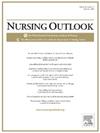Nursing disciplinary knowledge: Honoring the past and envisioning a future of PhD nursing education to advance health equity
IF 3.7
2区 医学
Q1 NURSING
引用次数: 0
Abstract
Background
Health equity is an essential focus of nursing education, research, and practice to mitigate continuing health disparities (National Academies of Sciences, Engineering, and Medicine, 2021; NINR, 2023). PhD in Nursing programs educate thousands of students annually (AACN, 2025) and collectively have the power to shape the nursing research agenda to answer this urgent call.
Purpose
Discuss the historical context of PhD nursing education that informs contemporary challenges of the discipline and guides us in developing the academic foundation of future nurse leaders and scientists to advance health equity.
Methods
Historical analysis of the development of nursing science and how racism and discrimination has perpetuated health disparities provides the context for PhD recommendations.
Discussion
Health equity-focused PhD programs must embrace diverse expertise and voices in knowledge creation, center history and health equity in curricula, interrogate research design for inherent racism and cultural bias, respectfully engage communities, and advocate for support.
Conclusion
Developing and modifying PhD programs to advance health equity science, including understanding the history of nursing and health disparities, is critical to achieve optimal health and health care and direct needed nursing research now and into the future.
护理学科知识:尊重过去和展望博士护理教育的未来,以促进健康公平
卫生公平是护理教育、研究和实践的基本焦点,以减轻持续的健康差距(美国国家科学院、工程院和医学院,2021年;NINR, 2023)。护理博士课程每年教育数千名学生(AACN, 2025),并共同有能力塑造护理研究议程,以回应这一紧急呼吁。目的探讨博士护理教育的历史背景,了解该学科的当代挑战,并指导我们发展未来护士领导者和科学家的学术基础,以促进健康公平。方法对护理科学的发展以及种族主义和歧视如何使健康差距长期存在的历史分析为博士推荐提供了背景。以健康公平为重点的博士课程必须在知识创造方面拥有不同的专业知识和声音,在课程中关注历史和健康公平,质疑研究设计中固有的种族主义和文化偏见,尊重社区,并倡导支持。结论发展和修改博士课程以促进健康公平科学,包括了解护理和健康差异的历史,对于实现最佳健康和卫生保健以及指导现在和未来所需的护理研究至关重要。
本文章由计算机程序翻译,如有差异,请以英文原文为准。
求助全文
约1分钟内获得全文
求助全文
来源期刊

Nursing Outlook
医学-护理
CiteScore
6.20
自引率
7.00%
发文量
109
审稿时长
25 days
期刊介绍:
Nursing Outlook, a bimonthly journal, provides innovative ideas for nursing leaders through peer-reviewed articles and timely reports. Each issue examines current issues and trends in nursing practice, education, and research, offering progressive solutions to the challenges facing the profession. Nursing Outlook is the official journal of the American Academy of Nursing and the Council for the Advancement of Nursing Science and supports their mission to serve the public and the nursing profession by advancing health policy and practice through the generation, synthesis, and dissemination of nursing knowledge. The journal is included in MEDLINE, CINAHL and the Journal Citation Reports published by Clarivate Analytics.
 求助内容:
求助内容: 应助结果提醒方式:
应助结果提醒方式:


